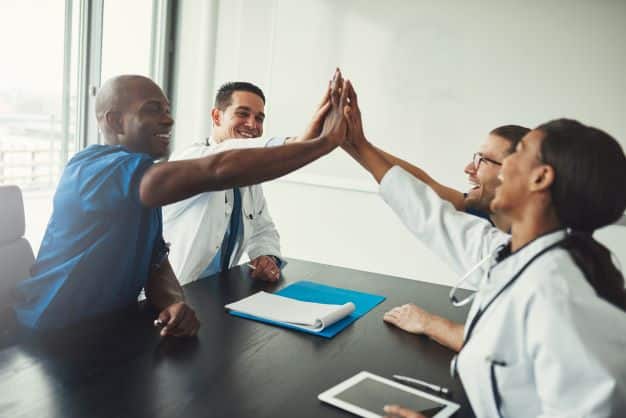Definition of Lifestyle Medicine
Lifestyle medicine is a medical specialty that uses therapeutic lifestyle interventions as a primary modality to treat chronic conditions including, but not limited to, cardiovascular diseases, type 2 diabetes, and obesity. Lifestyle medicine certified clinicians are trained to apply evidence-based, whole-person, prescriptive lifestyle change to treat and, when used intensively, often reverse such conditions. Applying the six pillars of lifestyle medicine—a whole-food, plant-predominant eating pattern, physical activity, restorative sleep, stress management, avoidance of risky substances and positive social connections—also provides effective prevention for these conditions.
Extensive scientific evidence supports the use of a whole-food, predominantly plant-based diet as an important strategy in the prevention of chronic disease, treatment of chronic conditions, and in intensive therapeutic doses, reversal of chronic illness. Such a diet is rich in fiber, antioxidants, and nutrient dense. Choose a variety of minimally processed vegetables, fruits, whole grains, legumes, nuts and seeds.
Regular and consistent physical activity combats the negative effects of sedentary behavior. It is important that adults engage in both general physical activity as well as purposeful exercise weekly as part of overall health and resiliency.
Stress can lead to improved health and productivity or it can lead to anxiety, depression, obesity, immune dysfunction and more. Helping patients recognize negative stress responses, identify coping mechanisms and reduction techniques leads to improved well-being.
The use of tobacco and excessive alcohol consumption have been shown to increase the risk of chronic diseases and death. Treatments often take time, different approaches and many attempts. Patience and support are an important part of breaking risky substance habits.
Sleep delays/interruptions have been shown to cause sluggishness, low attention span, decreased sociability, depressed mood, decreased deep sleep, decreased caloric burn during the day, increased hunger and decreased feeling of fullness, insulin resistance and decreased performance. Strive for seven (7) or more hours per night for optimal health.
Positive social connections and relationships affect our physical, mental and emotional health. Leveraging the power of relationships and social networks can help reinforce healthy behaviors.
Join our vibrant community and enjoy access to a rich catalogue of ACLM resources.
LIFESTYLE MEDICINE CERTIFICATION

Most physicians and health professionals receive little to no education on nutrition, physical activity, sleep, social connectivity, and the avoidance of risky substance use which are the six pillars of Lifestyle Medicine.
Certification in Lifestyle Medicine indicates that the individual has mastered the science of preventing, treating, and reversing chronic disease in an evidence-based manner with official acknowledgement from the American Board of Lifestyle Medicine (for physicians and specialists) or the American College of Lifestyle Medicine (for professionals and practitioners).
